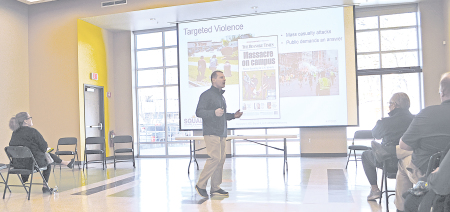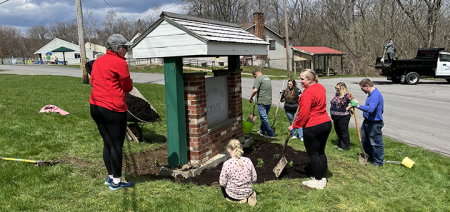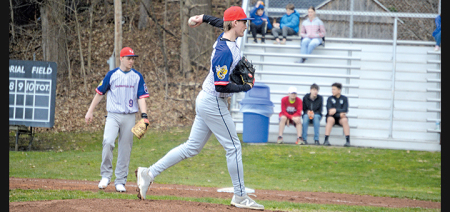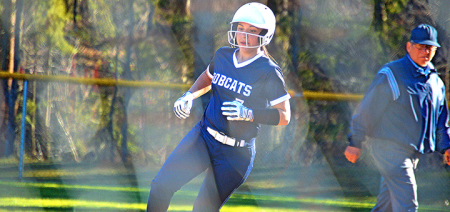Computer Talk Is Cheap
Published:
May 28th, 2013
By:
Jim Mullen

The phone hadn't rung all day, which was a blessing because we'd been catching up on a thousand and one things around the house. For us, spring cleaning involves some heavy lifting -- and that's just the dust bunnies. As a reward, we'd decided to treat ourselves to dinner out. Sue went upstairs to clean up and the moment I heard her turn on the shower, the phone rang. Dorothy the Computer from our prescription-by-mail company was on the line.
"We have some important questions about ... Sue's ... prescription. Is ... Sue ...there? Please say 'yes' or 'no.'"
"Yes, she's here but ..."
"Is this ... Sue? Please answer 'yes' or 'no.'"
"No, but I'm her husband ..."
"Please have ... Sue ... call 1-800-555-5553682973401328876, extension 12 for some very important information about your prescription. Thank you."
When I think of the 23 hours and 55 minutes a day that neither of us are in the shower, I wonder how it is possible that the computer will call the exact moment one of us turns on the water. I can see how a computerized phone call makes it easier for my health care provider; what I can't see is how it makes things easier for me. It is a one-way call disguised as a conversation. The only time you should have to answer a question with only "yes" or "no" is when you're on "Judge Judy."
I want my wife to get her medicine, and I don't want her to have to call 1-800-555-5553682973401328876, extension 12. Just let me speak to a human. Or a better computer program.
When I call someone, the first words out of my mouth are usually, "Is this a good time for you to talk?" I'm pretty sure a computer could learn how to say that. And if the answer is no, the computer could ask, "When is a good time to call you?" "Never" should be one of the choices.
The only good thing about computer phone calls is that I don't feel guilty about hanging up on a computer. I don't think that I have hurt its feelings. What bothers me is that they could be done so much better.
How many times has this happened to you? The computer asks you to type in your account number "for faster service." Finally, 20 minutes later when you finally get to speak to a human, the first thing out of his mouth is, "Can I please have your account number?" I never type in my account number anymore, and it almost always gets me faster service. By not typing it in, the computer says, "I'm sorry, I don't recognize that. Let me transfer you to someone who can help you."
I have to phone in test results every few weeks to one of my health care providers. The first thing their computer says to me is to call 911 if this is an emergency. Is there someone on this planet that would call 1-800-555-5553682973401328876, extension 12 first if they were having an emergency? It's like explaining to plane passengers how to buckle a seat belt. If they don't already know how to do that, how are they ever going to figure out the toilet?
Somehow, we can tell the difference between a computer's voice and an actual human. But every day they are getting better and more realistic. A computer recently ended one call to me by saying "thank you," and I said "thank you" back. Was it just out of habit, or for a moment, could I not tell the difference? And what happens when the day comes that we really can't tell the difference?
I think we'll always be able to tell, even if the computer voices are perfect. How many humans are going to start a conversation by saying, "If you'd like to speak to me in Spanish, press 9" in perfect Spanish? No matter how human they sound, that's got to be a dead giveaway.
Contact Jim Mullen at JimMullenBooks.com.
Author: Jim Mullen - More From This Author
Comments








